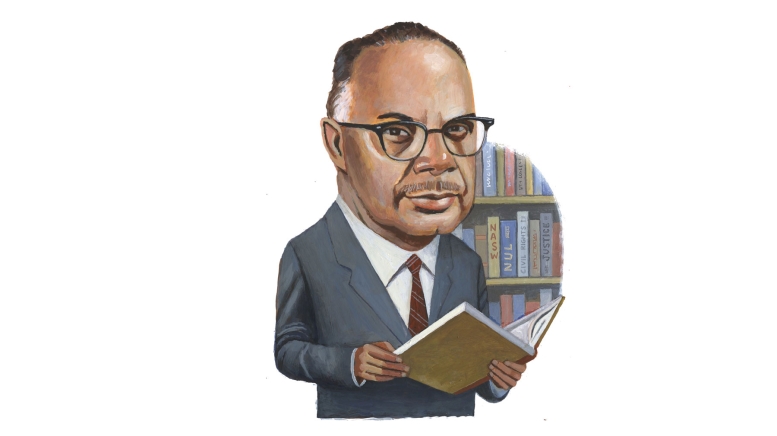Poised to Excel
Granger was born in Virginia in 1896, the son of a doctor from Barbados and his schoolteacher wife. Four of Lester’s five brothers also attended Dartmouth, where he earned a degree in economics. Later he served as a U.S. Army lieutenant in France during World War I. He was the only son who didn’t pursue a career in medicine or law.
Unions and Social Work
Granger led the National Urban League (NUL), from 1941 to 1961, promoting the development of Black trade unions and challenging racist hiring practices. The National Association of Social Workers lists him as an “NASW Pioneer” for having introduced civil rights into the social work agenda.
The Great Migration
Granger also led the NUL’s Workers’ Bureau, which helped Black citizens migrating from the rural South in search of jobs get situated. Some critics faulted his focus on jobs and self-help, rather than direct political action, but Granger felt both approaches were vital, according to Hugh B. Price, NUL’s CEO from 1994 to 2003. “If you’re to function on a daily basis, you need food, clothing, and shelter,” Price says. “And you want the right to vote and the right to not be lynched.”
Reforming the Jim Crow Navy
More than 1 million Black men and women served in the military during World War II—nearly all assigned to segregated units commanded by white officers. In 1945, amid growing racial tension and conflict in the Navy—including a mutiny near San Francisco and a race riot in Guam—Navy Secretary James V. Forrestal, class of 1915, appointed Granger to investigate. In six months, Granger traveled 50,000 miles, visited 67 naval installations, and talked to nearly 10,000 Black sailors without their officers present. Largely at Granger’s behest, the Navy went from having the most severe racial policies among the armed forces at the time to the most liberal: It integrated facilities, removed restrictions that limited assignments to Black sailors, and commissioned more Black officers.
College Prof
After retiring from the NUL in 1961, Granger taught social work at Dillard University in New Orleans. He continued to urge social workers to join the battle against social injustice and “help to remake or eliminate those forces that have twisted and blighted the lives of millions of Americans.”
Forgotten Legacy?
U.S. President Harry S. Truman presented Granger with the President’s Medal of Merit in 1947. But when Granger died in 1976, Vernon E. Jordan Jr., who led the NUL from 1971 to 1981, lamented widespread ignorance about his predecessor. As Price says, Granger was “an underappreciated giant.” In 2002 the William Jewett Tucker Foundation established the Lester B. Granger ’18 Award for Lifetime Achievement, presented to a Dartmouth graduate whose commitment to public service it deems exemplary. The most recent recipient is Dr. Matias Vega, Med’78.




